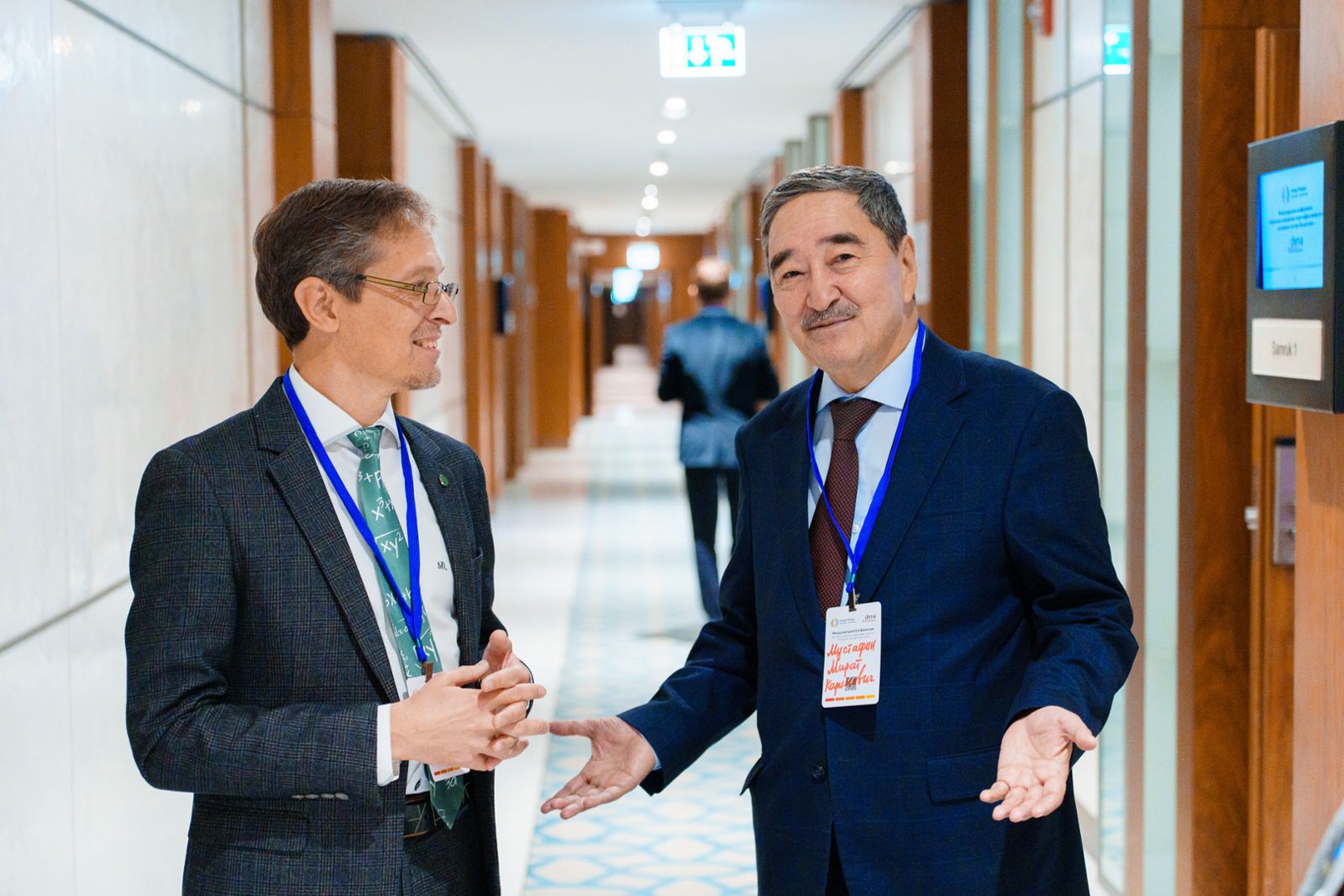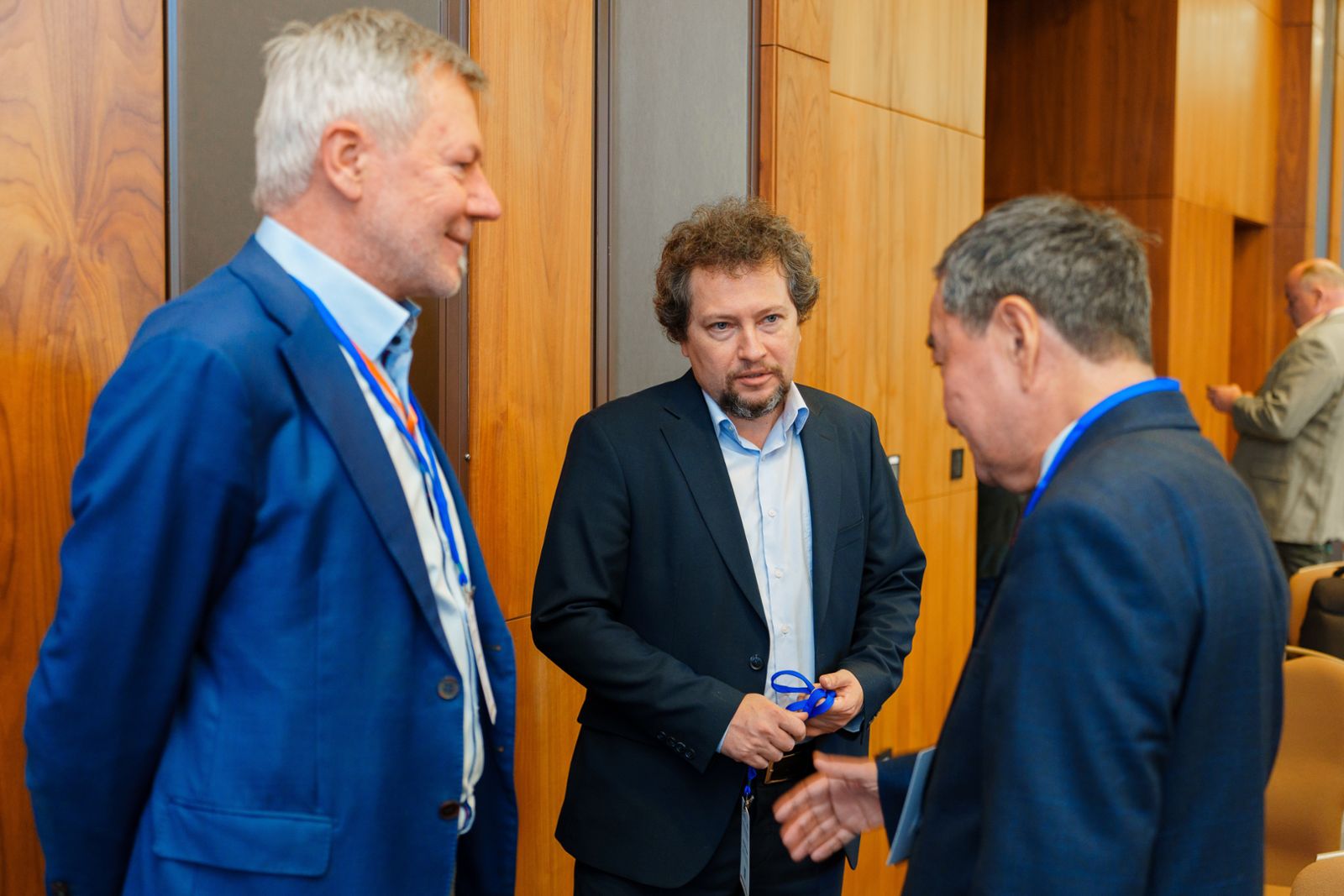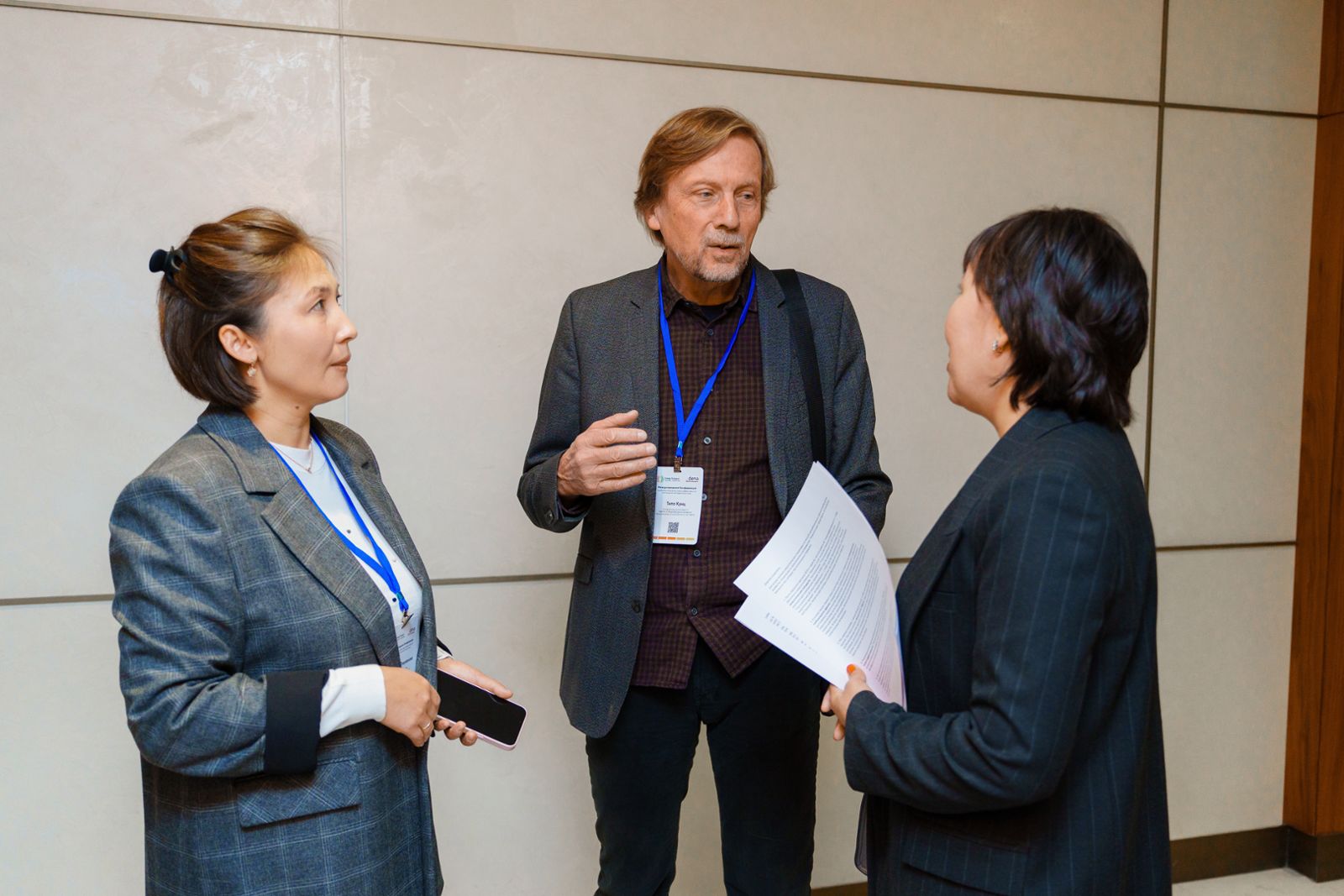News
News & Events
28 October 2024
Conference in Astana proposes measures of improvements for the energy efficiency of residential buildings in Kazakhstan

from left to right: Moderator Alexander Bely, Ph.D. Executive Director, Kazakhstan Green Build-ing Council (KazGBC), Astana, Kazakhstan, and Marat Musafin, member of the Public Council, Chairman of the Commission on Energy Efficiency and Housing and Utilities, Astana City.
© Rystam Ibraev
As part of the energy dialogue between the governments of Kazakhstan and Germany and with the support of the Ministry of Industry and Construction of the Republic of Kazakhstan, the international conference ‘Problems of Energy Efficiency Improvement in the Residential Sector of Kazakhstan’ took place in Astana on 18 October 2024. The conference was attended by Kazakh experts, representatives of state authorities and companies. In total there were about 60 participants.
International experts from the projects ‘ENABLE - Empowered Civil Society for a Sustainable and Efficient City’, currently running in Kazakhstan and ‘Eastern Partnership and Central Asia FELICITY II Programme - providing advice to cities and municipalities on financing low-carbon energy development’ reported on successful practical experiences with the energy-efficient modernisation of residential buildings from Germany, Lithuania and other countries.
The most important conclusions of the conference:
1. Kazakhstan has the necessary conditions for the development of energy efficiency measures in buildings (legal framework, programmes to support owners in the refurbishment of residential buildings, sufficiently developed structures in the housing sector and communal services, etc.).
2. At the same time, there is still no targeted, systematically developed policy for energy saving in buildings - although 40% of all energy is consumed in buildings.
3. It is meaningful to use the ‘project office’ as a strategic development tool for policy design, representing a structure responsible for energy efficiency in buildings (new construction, modernisation) and operating according to modern rules of an efficient management.
4. The project office will help to structure the inter-institutional dialogue needed to organise the process of large-scale building refurbishment.
At the conference, arguments were presented why the energy modernisation of the housing stock (especially of apartment buildings) should not be postponed. The majority of buildings in Kazakhstan are residential buildings, the energy modernisation of which represents a major challenge according to the experience of both Western European and post-Soviet countries:
- The degradation of the housing stock (especially of buildings from the 60-90s).
- The need for a complex approach to modernisation - energy, communal infrastructure and buildings / residential buildings (the experience of many countries confirms this - the financial savings are significant). The current government policy aimed at modernising the energy and distribution structure without considering the buildings / residential buildings is a more costly option for the country.
- Solving the problem of subsidised heat and electricity tariffs for the population ─ how should subsidisation along the heat / electricity value chain be reduced for the population (taking into account support for socially weaker population groups).
- Lengthy preliminary work for the energy modernisation of apartment buildings (MFH) ─ time-consuming decision-making by owners (due to the high degree of privatisation of flats in MFH - 97 %).
The dialogue initiated at the conference will be continued at the round table ‘Improving the energy efficiency of the housing stock ─ opportunities for business’ on 06 November in Astana.
If you have any questions, please contact Larissa Schreckenbach, Project ENABLE, IWO e.V., Berlin, e-mail: schreckenbach@iwoev.org.

from left to right: Valius Serbenta, International Expert on Energy Efficiency in Buildings, Vilnius, Lithuania, and Arkady Rubtsov, Association of Legal Entities "Almaty City Association of Coop-eratives of Owners of Apartments in Housing Services", Almaty, Kazakhstan.
© Rystam Ibraev

from left to right: Dr.-Ing Gulzhan Tleukenova, Head of Energy Efficient Buildings Group, Buildings International, German Energy Agency (dena), Berlin, Germany, and Thilo Cunz, Head of Department "Buildings International", German Energy Agency (dena), Berlin, Germany
© Rystam Ibraev